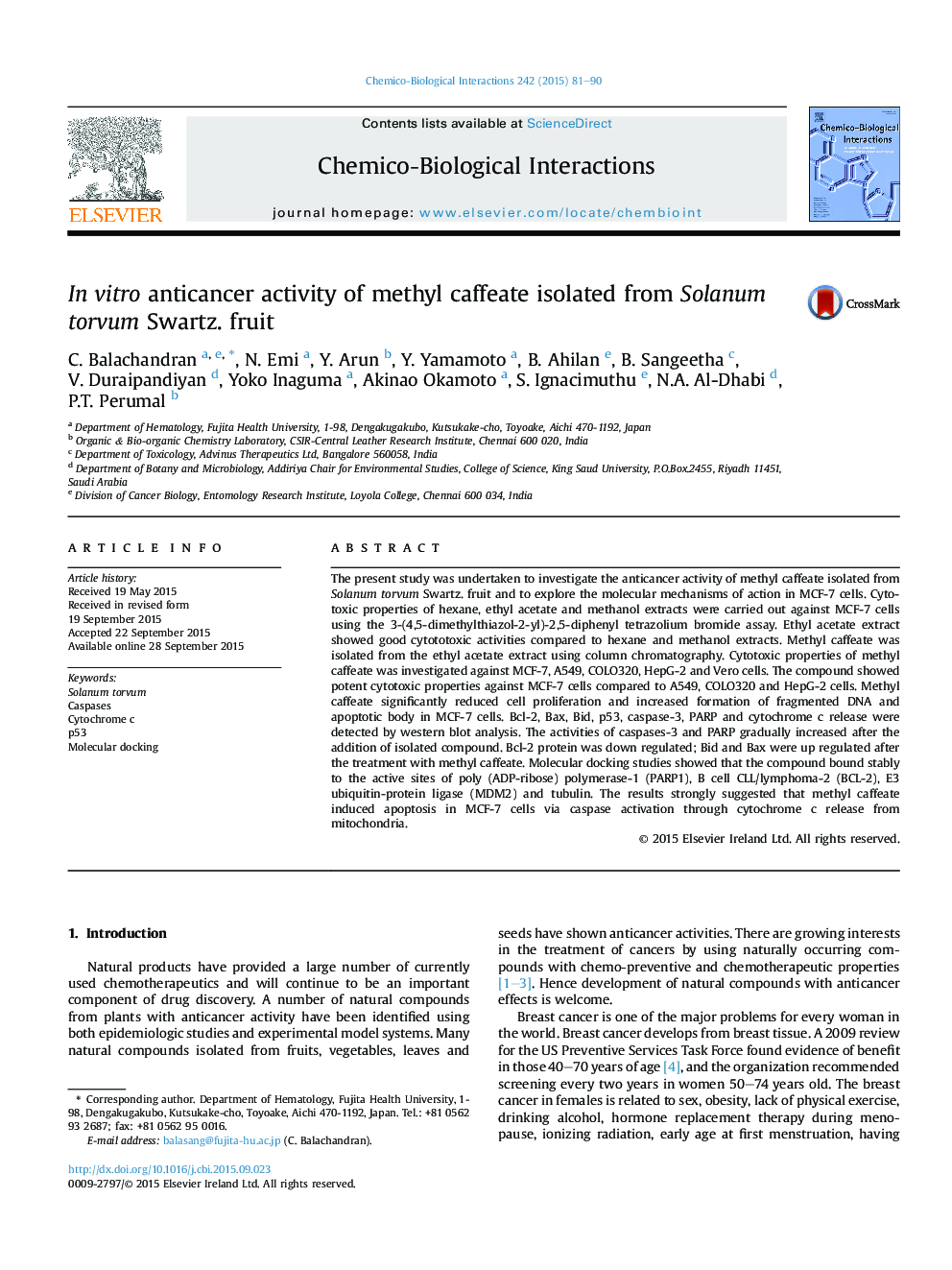| کد مقاله | کد نشریه | سال انتشار | مقاله انگلیسی | نسخه تمام متن |
|---|---|---|---|---|
| 2579958 | 1561599 | 2015 | 10 صفحه PDF | دانلود رایگان |

• Methyl caffeate was investigated against MCF-7, A549, COLO320, HepG-2 and Vero cells.
• Methyl caffeate showed significant anticancer activity against MCF-7 cells.
• It inhibits caspase activation through cytochrome c release from mitochondria.
• Molecular docking studies showed that the compound bound good binding energy.
The present study was undertaken to investigate the anticancer activity of methyl caffeate isolated from Solanum torvum Swartz. fruit and to explore the molecular mechanisms of action in MCF-7 cells. Cytotoxic properties of hexane, ethyl acetate and methanol extracts were carried out against MCF-7 cells using the 3-(4,5-dimethylthiazol-2-yl)-2,5-diphenyl tetrazolium bromide assay. Ethyl acetate extract showed good cytototoxic activities compared to hexane and methanol extracts. Methyl caffeate was isolated from the ethyl acetate extract using column chromatography. Cytotoxic properties of methyl caffeate was investigated against MCF-7, A549, COLO320, HepG-2 and Vero cells. The compound showed potent cytotoxic properties against MCF-7 cells compared to A549, COLO320 and HepG-2 cells. Methyl caffeate significantly reduced cell proliferation and increased formation of fragmented DNA and apoptotic body in MCF-7 cells. Bcl-2, Bax, Bid, p53, caspase-3, PARP and cytochrome c release were detected by western blot analysis. The activities of caspases-3 and PARP gradually increased after the addition of isolated compound. Bcl-2 protein was down regulated; Bid and Bax were up regulated after the treatment with methyl caffeate. Molecular docking studies showed that the compound bound stably to the active sites of poly (ADP-ribose) polymerase-1 (PARP1), B cell CLL/lymphoma-2 (BCL-2), E3 ubiquitin-protein ligase (MDM2) and tubulin. The results strongly suggested that methyl caffeate induced apoptosis in MCF-7 cells via caspase activation through cytochrome c release from mitochondria.
Figure optionsDownload as PowerPoint slide
Journal: Chemico-Biological Interactions - Volume 242, 5 December 2015, Pages 81–90